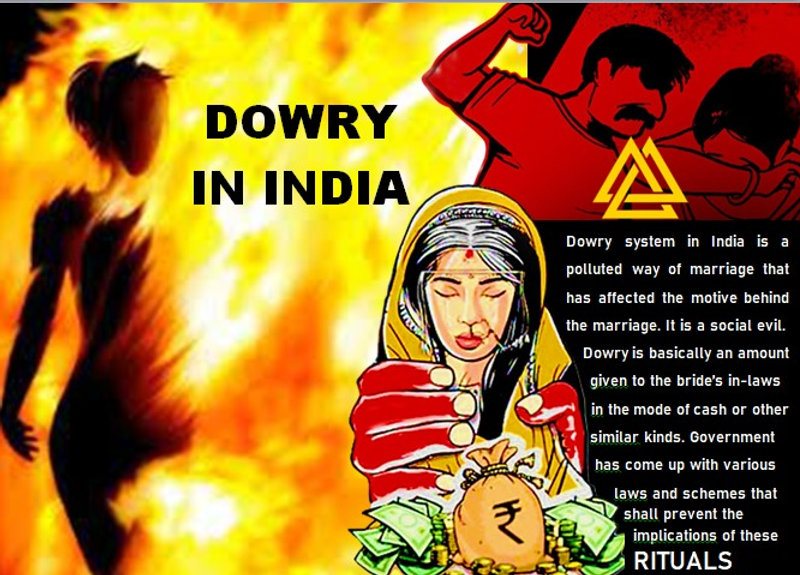 The practice of dowry remains one of the most deep-rooted social evils in Punjab, as well as in other parts of India. It involves the transfer of wealth, goods, or money from the bride’s family to the groom’s family at the time of marriage. While this tradition has existed for centuries, it has become a significant cause of gender inequality, domestic violence, and financial strain on families.
The practice of dowry remains one of the most deep-rooted social evils in Punjab, as well as in other parts of India. It involves the transfer of wealth, goods, or money from the bride’s family to the groom’s family at the time of marriage. While this tradition has existed for centuries, it has become a significant cause of gender inequality, domestic violence, and financial strain on families.
Main Reasons for Dowry in Punjab
Cultural and Historical Roots
Dowry is often seen as a customary practice rooted in tradition. Families believe it is their duty to provide gifts to ensure the bride’s future security and acceptance in her marital home.
Social Status and Prestige
In Punjabi culture, where weddings are often lavish, dowry is sometimes seen as a way to display wealth and social status. Families fear societal judgment if they fail to give a substantial dowry.
Gender Inequality
The deeply ingrained preference for male children leads to the perception that daughters are a financial burden. This mindset perpetuates the idea that dowry is necessary to “marry off” daughters.
Economic Pressure on Brides’ Families
Families often feel compelled to give dowries to secure desirable matches for their daughters, particularly if the groom is well-educated, employed abroad, or comes from a prosperous family.
Lack of Education and Awareness
Many families, especially in rural areas, are unaware of the legal provisions against dowry. Additionally, there is limited awareness of the long-term consequences of this practice on gender equality and women’s empowerment.
Weak Enforcement of Anti-Dowry Laws
Although the Dowry Prohibition Act (1961) criminalizes dowry, poor implementation and corruption often lead to ineffective enforcement of these laws.
Ways to Stop Dowry in Punjab
Strict Enforcement of Laws
The government must strengthen the implementation of anti-dowry laws, ensuring that offenders face strict penalties. Special task forces and fast-track courts could be established to address dowry-related cases.
Promoting Gender Equality
Educational campaigns promoting the value of daughters and challenging patriarchal norms can help change societal attitudes. Programs encouraging equal opportunities for women in education and employment are vital.
Encouraging Simpler Weddings
The community should discourage extravagant weddings and promote modest ceremonies, eliminating the competition to display wealth and social status.
Awareness Campaigns
NGOs, media, and community leaders can play a crucial role in spreading awareness about the harmful effects of dowry and the legal consequences of engaging in the practice.
Empowering Women
Financial independence through education and employment can empower women to resist dowry-related exploitation. Vocational training and skill-building initiatives should be made accessible.
Community Involvement
Religious and social organizations can take a stand against dowry, encouraging families to boycott the practice. Mass pledges and campaigns to refuse dowries in marriages can create a ripple effect in society.
Incentivizing Dowry-Free Marriages
Governments and local authorities can reward families and couples who opt for dowry-free marriages, setting an example for others.
Conclusion
Dowry is a social evil that undermines the dignity and status of women in Punjab. It perpetuates gender inequality, financial stress, and violence in society. Addressing this issue requires a collective effort involving stricter laws, public awareness, education, and societal change. By rejecting dowry and embracing equality, Punjab can take a significant step toward empowering women and building a just society.